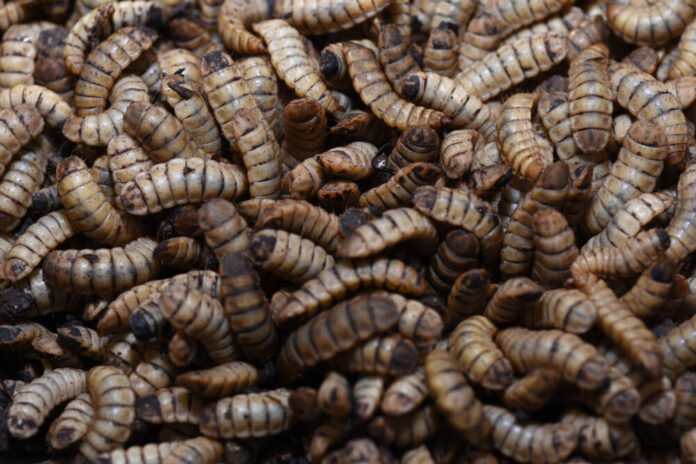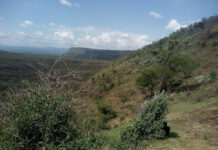By Steve Khaemba, DevReporte4r, Nakuru County

Nakuru is transforming waste into wealth through the development of the black soldier fly farming (BSF), a sustainable alternative for animal feed and organic waste disposal potentially addressing waste management and food security issues.
Transforming Waste into Wealth
BSF farming has changed everything for farmers like Mary Njeri. “Three years ago, I couldn’t have imagined that flies would change my life,” she says. Like many other farmers, Mary used to discard organic waste from her kitchen and crops. It is now fed to BSF larvae, from which she harvests nutrient-rich larvae to feed her hens. “Organic fertilizer significantly reduced chicken feed costs and improved crop growth, demonstrating the significant impact of small changes.” Says Mary Njeri.
According to 2021 research by Australian Center for International Agricultural Research,farms treated with the frass fertilizer has 14% higher crop yields than farms treated with existing commercial organic fertilizer.
James Korir, another farmer, admits that he was initially skeptical. “At first, I couldn’t believe that insects could compete with commercial feed,” he says. However, after seeing his chickens grow healthier on the larvae, he became a convert. “The biggest expense associated with operating a chicken farm, is feed. With black soldier fly larvae, I can better manage my expenses because I’m not dependent on market rates.” There is no denying the financial gain. Farmers like Mary and James have found a sustainable alternative that not only saves them money but also reduces their dependence on expensive and often, inconsistent commercial feeds.
A Sustainable Solution for Agriculture
BSF farming offers several solutions to the major problems facing agriculture, beyond merely saving costs. An entomologist at the Eldoret Technical Training Farm and BSF trainer, Bravia Adhiambo Beka, has spent years researching the ecological effects of BSF farming. “The black soldier fly larvae efficiently decompose organic waste, converting it into high-quality protein for livestock feed and nutrient-rich compost for farms,” she says.
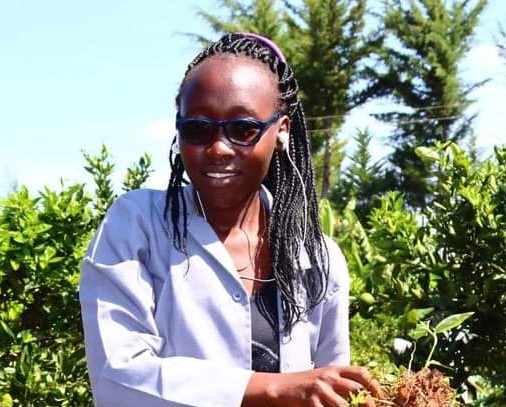
Large volumes of organic matter can be consumed by BSF larvae, which dramatically lowers food waste while generating useful products like animal feed high in protein as well as frass, an effective organic fertilizer. This process not only reduces waste but also curbs greenhouse gas emissions linked to traditional methods like landfilling and burning waste.
“The essence of BSF farming,” says Bravia, “is recycling organic waste, such as pig manure, which is nutrient-rich due to pigs’ poor digestion. The larvae feed on this waste, converting it into organic manure that can be used to boost crop production.”
A Path to Food Security
BSF farming is gaining attention for its ability to reduce dependence on conventional livestock feed like soy and fish meal, which are resource-intensive and costly. The larvae are an excellent source of protein and fats, making them an ideal substitute for animal feed. “These flies are very rich in protein—around 47.7%,” says Bravia. “When feeding poultry, you only need 130 grams per day.”
BSF larvae feed reduces farmers’ costs and negative environmental impact. On the other hand, the waste left after larvae consumes organic material, serves as nutrient-rich fertilizer, subsequently promoting sustainable farming practices.
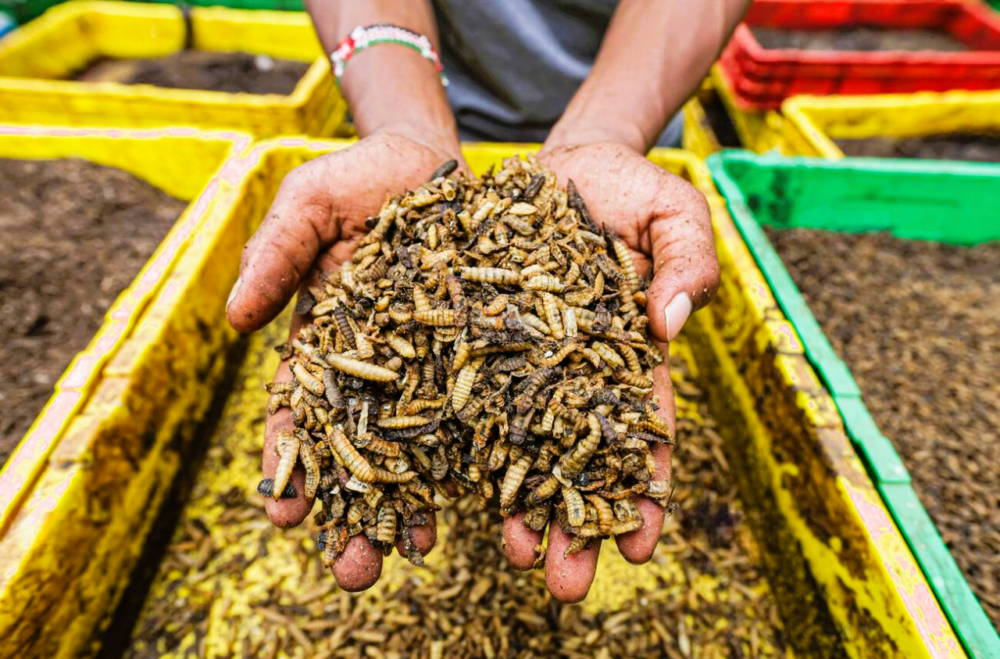
For Mary Njeri, the benefits go beyond just cutting feed costs. “Now, I’m teaching other women in my community how to set up their own BSF farms. We’re growing together, and that’s what matters.” Says Mary Njeri.
The Future of Farming
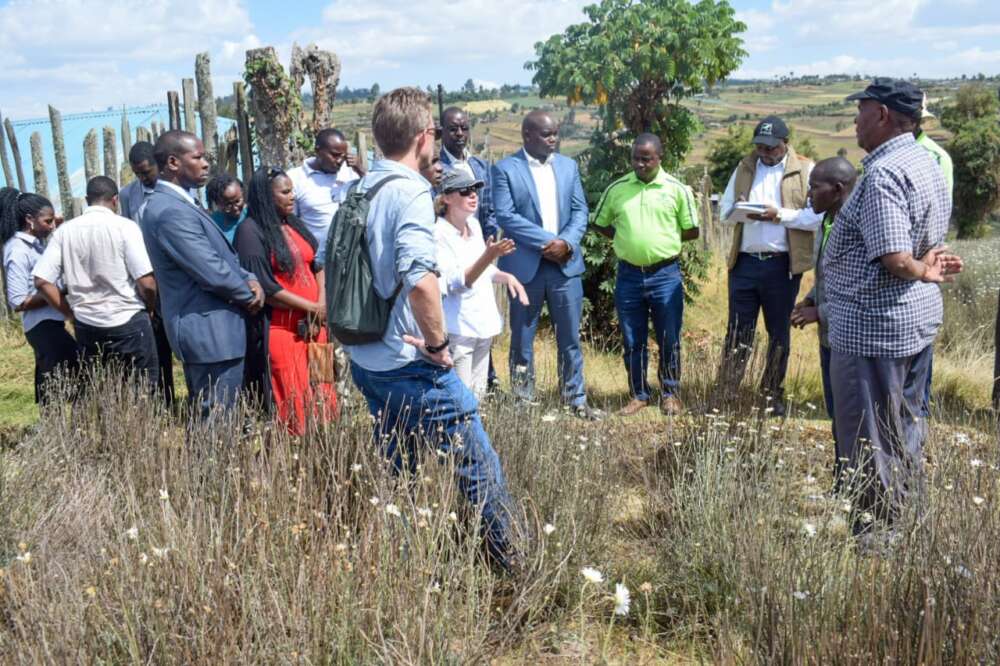
Nakuru County Government in collaboration with Dan Church Aid (DCA) conducted private stakeholders’ engagement field visits to farmers to help them understand the successes and challenges of the projects implemented by the organization in the county. The team led by CECM Agriculture, Mr. Leonard Bor, and DCA Regional Manager, Dr Immaculate Maina, visited black soldier fly farmers in Njoro Sub- County.
During the visits, it was noted that there’s a need to strengthen farmers’ associations and cooperatives in the county in order to empower the farmers to practice non-conventional farming as an alternative source of income.
In an era where sustainability is key, black soldier fly farming may just be the unsung hero of the agricultural revolution. Bravia speaks. “With its ability to reduce waste, lower feed costs, and improve food security, BSF farming offers a promising path forward.”
As the movement grows, farmers are encouraged to seek training and technical knowledge to fully realize the potential of BSF farming. “Farmers should get hands-on experience and have a plan for feeding the larvae,” Bravia advises.
The practice of black soldier fly farming is opening doors to a more wealthy and sustainable future. BSF farming provides an answer that helps farmers, the environment, and society by solving waste management and feed shortages. This cutting-edge agricultural method has the potential to revolutionize agriculture and, with it, the future of food security, as demonstrated by Bravia, James, and Mary.



